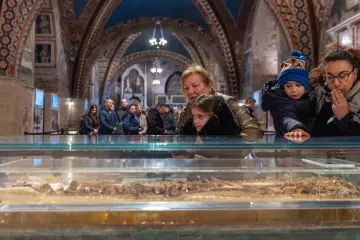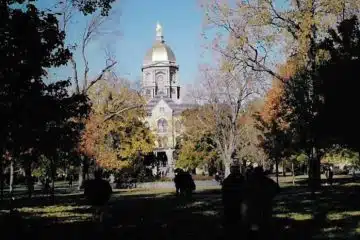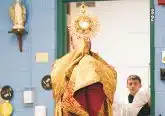Seek the Lord for January 2024
The last Sunday in January marks the kickoff of National Catholic Schools Week, a time set aside by dioceses throughout our country to highlight the importance of faithful, integral Catholic formation and education to the salvific mission of the Church. During this week we also celebrate the feast days of two saints whose legacies are significant for Catholic education. On January 28, we remember the life and work of St. Thomas Aquinas, a brilliant theologian and philosopher of the late Middle Ages, who is the patron saint of students and educators. Then on January 31, we celebrate the feast day of St. John Bosco, a 19th century priest who dedicated himself to working with youth, especially the poor and troubled. Even though they lived centuries ago, these two saints are no less relevant for illuminating the true nature of Catholic education.
St. Thomas Aquinas immersed himself in studies of various academic disciplines: history, philosophy, theology, ethics and physics. He loved learning because he understood that “all the sciences and arts are ordained to one thing, namely, to man’s perfection, which is happiness” (Commentary on Aristotle’s Metaphysics, Prologue).
The purpose of Catholic education is to help us achieve our fullest potential as humans, which is eternal happiness with God forever in heaven. In his writings, St. Thomas showed how reason and faith coexist and, in fact, support and enhance each other. They are not two opposed fields of knowledge but, as Pope St. John Paul II would later say, “Faith and reason are like two wings on which the human spirit rises to the contemplation of truth” (Fides et Ratio). The various arts and sciences are pathways for growing closer to God since students learn in these the endless wonders of His creation. This understanding of education as pursuit of the fullness of truth continues to be a foundational principle of our Catholic schools.
Like other schools, Catholic schools “through an organized and systematized teaching activity, offer a culture aimed at the integral education of individuals” (The Identity of the Catholic School for a Culture of Dialogue, n. 19). However, Catholic schools have a unique identity, their “reference to a Christian concept of life centered on Jesus Christ” (n. 20). In fact, “the personal relationship with Christ enables the believer to look at the whole of reality in a radically new way, granting the Church an ever-renewed identity, with a view to fostering in the school communities adequate responses to the fundamental questions for every woman and man” (n. 20). Catholic schools provide the setting where an individual’s relationship with Jesus Christ is not only fostered spiritually, but also becomes the starting point for learning about the world in which we live and how we each can make our contribution to it.
With wisdom that still benefits us today, St. John Bosco said, “If we want to have a good society, we must concentrate all our forces on the Christian education of the young. Experience has taught me that if we wish to sustain civil society then we should take good care of the young.” Our Catholic schools, then, have the capacity to greatly shape the culture of our communities and society at large. They are the places where Christ, who is “the Way, the Truth, and the Life” (Jn. 14:6), continues to be the Teacher around whom His disciples gather to know, love and follow Him throughout this life and into the next.













